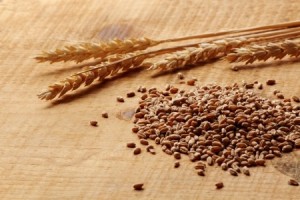What Does It Mean to Be Gluten Free?
 Gluten has recently become a villain in the health food world, leading to a surge in gluten-free diets and food options. But what exactly is gluten, and why are so many people opting to become gluten-free?
Gluten has recently become a villain in the health food world, leading to a surge in gluten-free diets and food options. But what exactly is gluten, and why are so many people opting to become gluten-free?
About Gluten
Gluten is a protein that occurs in wheat, barley, and rye, which means it’s prevalent in nearly all common breads, baked goods, cereals, and even soups, sauces, and salad dressings.
Popular gluten-free alternatives include corn in all forms, plain rice, flax, quinoa, and flours made from gluten-free options like coconut and nuts. Real dairy, fruits, vegetables, meat, eggs, nuts, beans, and legumes are all safe to eat because they do not contain gluten either.
Why Avoid Gluten?
Most people avoid gluten to enjoy the associated health benefits, not because it’s a necessary medical choice.
It’s medically necessary for about 1 in every 133 people due to the presence of celiac disease, an autoimmune disease that leads gluten to cause severe damage to the small intestine. A small percentage of people also have a diagnosed wheat allergy and suffer respiratory, gastrointestinal, and skin problems upon eating gluten.
The majority of people choosing to remain gluten-free either have a non-celiac sensitivity to gluten or just want to reap the health benefits now associated with avoiding gluten.
Is Gluten Dangerous?
This is a hotly debated question, and there’s no one simple answer unless you have celiac disease. For the rest of the population, the pros and cons of gluten are more about personal preference.
Those who believe firmly in following a gluten-free diet experience significant relief from gut inflammation after cutting out gluten for good. These people say they feel lighter, healthier, and cleaner.
Gluten has also struck a chord in the autism community, as many people with autism spectrum disorder have experienced relieved symptoms by following a gluten-free and casein-free diet. Though research isn’t fully developed in this area, parents of children with autism have had great success achieving behavioral and symptomatic progress by switching to a gluten-free diet.
At the end of the day, avoiding gluten usually means avoiding processed foods, which is healthier for everybody, no doubt about it.

